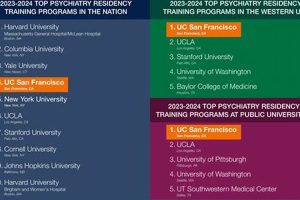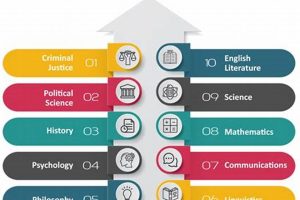Top-tier institutions for dramatic arts training offer rigorous programs designed to cultivate talent and prepare aspiring actors for professional careers. These programs typically encompass a range of performance styles, including classical theater, contemporary drama, and musical theatre, alongside training in vocal projection, movement, and character development. A rigorous audition process often involving prepared monologues, songs, and cold readings is standard for admission.
Exceptional actor training provides a foundation for success in a highly competitive field. A comprehensive curriculum equips performers with the technical skills, artistic sensibilities, and industry knowledge necessary to navigate the complexities of professional acting. Historically, dedicated academies for the performing arts have played a vital role in shaping theatrical traditions and fostering generations of talented artists. These institutions continue to serve as crucial incubators of creativity, contributing significantly to the evolution of dramatic arts.
The following sections will explore key factors to consider when evaluating dramatic arts programs, including faculty expertise, curriculum design, performance opportunities, and industry connections. Further discussion will address the challenges and rewards of pursuing a career in acting and the evolving landscape of the entertainment industry.
Tips for Selecting a Distinguished Dramatic Arts Program
Choosing the right training program is crucial for aspiring performers. Careful consideration of several key factors can significantly impact one’s educational experience and career trajectory.
Tip 1: Faculty Expertise: Seek programs with instructors possessing extensive professional experience and a demonstrated commitment to pedagogical excellence. Investigate faculty credentials, including performance credits, directing experience, and scholarly contributions.
Tip 2: Curriculum Breadth: A well-rounded curriculum should encompass a variety of performance techniques, vocal training, movement studies, and theatrical history. Explore programs offering opportunities for specialization in areas such as classical acting, musical theatre, or contemporary performance.
Tip 3: Performance Opportunities: Ample opportunities for practical application are essential for skill development. Consider programs offering diverse performance experiences, including mainstage productions, studio workshops, and student-led initiatives.
Tip 4: Industry Connections: Strong industry ties can facilitate valuable networking opportunities and career pathways. Investigate programs offering internships, showcases, and guest artist workshops.
Tip 5: Program Philosophy: Each institution possesses a unique pedagogical approach and artistic vision. Carefully consider whether a program’s philosophy aligns with one’s personal artistic goals and learning style.
Tip 6: Facilities and Resources: Access to state-of-the-art facilities, including well-equipped theaters, rehearsal spaces, and technical resources, can significantly enhance the learning experience.
Careful consideration of these factors will contribute significantly to selecting a program that cultivates artistic growth and prepares aspiring performers for successful careers. A well-informed decision can lay a strong foundation for a rewarding and fulfilling career in the dramatic arts.
Ultimately, choosing a dramatic arts program represents a significant investment in one’s future. By thoroughly researching potential programs and carefully considering individual needs and aspirations, prospective students can make informed choices that align with their artistic goals and career ambitions.
1. Faculty Expertise
Faculty expertise stands as a cornerstone of distinguished dramatic arts programs. Accomplished instructors, often with extensive professional experience in theater, film, and television, provide students with invaluable insights, mentorship, and practical training. The faculty’s pedagogical approach, combined with their professional achievements, shapes the learning environment and influences student outcomes. For instance, a program with instructors possessing substantial directing experience can provide students with advanced training in scene study and character development. Similarly, faculty members with established acting careers can offer nuanced guidance on audition techniques and professional practices. This direct transmission of knowledge and experience from working professionals to aspiring actors contributes significantly to a program’s overall quality.
The impact of faculty expertise extends beyond technical skill development. Experienced instructors cultivate critical thinking, artistic exploration, and collaborative skills, essential for navigating the complexities of the performing arts. They create a dynamic learning environment that fosters creativity and encourages students to develop their unique artistic voices. Exposure to diverse pedagogical approaches and artistic perspectives further enriches the learning experience. A faculty member specializing in Shakespearean performance, for example, can provide specialized training in verse speaking and textual analysis, while an instructor with expertise in experimental theater can introduce students to avant-garde techniques and performance styles.
In summary, the quality of a dramatic arts program is intrinsically linked to the expertise of its faculty. Experienced instructors provide not only technical training but also artistic guidance and mentorship, shaping students into well-rounded performers prepared for the challenges and opportunities of a professional career. Institutions committed to attracting and retaining accomplished faculty demonstrate a dedication to providing students with a superior educational experience. This commitment to faculty excellence ultimately distinguishes the best drama schools from their counterparts.
2. Curriculum Breadth
A hallmark of leading dramatic arts programs lies in the breadth and depth of their curricula. Comprehensive training equips aspiring performers with a diverse skill set, fostering versatility and adaptability essential for navigating the evolving entertainment landscape. A broad curriculum encompasses not only core acting techniques but also complementary disciplines such as voice training, movement, stage combat, and theatrical history. This multifaceted approach prepares graduates for a wider range of performance opportunities, from classical stage productions to contemporary screen acting. For example, a curriculum incorporating Alexander Technique or Laban Movement Analysis provides performers with valuable tools for physical control and expressiveness, enhancing stage presence and mitigating the risk of injury. Similarly, training in various vocal techniques, from opera to musical theatre belting, expands performance range and marketability. The ability to transition seamlessly between diverse styles and genres represents a significant advantage in a competitive industry.
The benefits of a broad-based curriculum extend beyond technical proficiency. Exposure to diverse theatrical traditions and performance styles cultivates artistic sensibilities and critical thinking, fostering a deeper understanding of the dramatic arts. Study of theatrical history, dramatic literature, and playwriting, for example, provides context and informs performance choices. A well-rounded curriculum also encourages exploration and experimentation, allowing students to discover their individual strengths and develop a unique artistic voice. Opportunities to engage with diverse performance genres, from Shakespearean tragedy to experimental devised theater, broaden artistic horizons and foster a lifelong love of learning. This breadth of experience contributes significantly to the development of well-rounded artists capable of making meaningful contributions to the field.
In conclusion, curriculum breadth serves as a critical indicator of a distinguished dramatic arts program. A comprehensive and multifaceted approach to training not only equips performers with essential technical skills but also cultivates artistic growth and intellectual curiosity. This holistic approach prepares graduates for the multifaceted demands of a professional career, enabling them to adapt to diverse roles and contribute meaningfully to the evolving landscape of the performing arts. The ability to synthesize diverse skills and knowledge sets graduates of top-tier programs apart, positioning them for success in a competitive and ever-changing industry.
3. Performance Opportunities
A strong correlation exists between ample performance opportunities and the quality of dramatic arts training. Distinguished programs recognize the crucial role of practical application in skill development and artistic growth. Frequent and diverse performance experiences allow students to hone their craft, build confidence, and adapt to various performance styles. These opportunities serve as a bridge between theoretical learning and professional practice. For instance, a program offering regular showcases, student-led productions, and participation in established theater companies provides invaluable real-world experience. The chance to perform before live audiences, receive feedback, and collaborate with peers contributes significantly to a performer’s growth. Institutions like the Juilliard School and the Yale School of Drama are renowned for providing students with numerous performance opportunities, often culminating in professional-level productions.
The nature and quality of performance opportunities significantly differentiate leading programs. Exposure to diverse performance genres, including classical theater, contemporary drama, musical theatre, and experimental performance, broadens artistic horizons and cultivates versatility. Participation in productions directed by established professionals, alongside experienced actors and crew members, elevates the learning experience. These collaborations simulate professional working environments, exposing students to industry standards and best practices. Furthermore, institutions with strong ties to professional theaters and production companies often offer internship opportunities, providing invaluable pathways into the industry. Such connections can lead to casting opportunities, professional mentorship, and a deeper understanding of the professional landscape.
In summary, performance opportunities represent a critical component of high-quality dramatic arts training. Institutions that prioritize practical application and provide students with diverse and challenging performance experiences cultivate well-rounded performers prepared for the rigors of a professional career. The frequency, diversity, and professional context of these opportunities significantly contribute to a program’s overall excellence and influence student outcomes. This emphasis on practical experience distinguishes the best drama schools, positioning their graduates for success in a competitive and dynamic industry.
4. Industry Connections
Strong industry connections represent a defining characteristic of top-tier dramatic arts programs. These connections provide invaluable bridges between academic training and professional practice, offering students access to resources, mentorship, and career opportunities often unavailable elsewhere. The extent and quality of these connections directly influence a program’s ability to prepare graduates for successful careers in the competitive entertainment industry.
- Internships and Apprenticeships
Leading programs often cultivate partnerships with professional theaters, production companies, and casting agencies, creating pipelines for student internships and apprenticeships. These opportunities provide real-world experience, allowing students to observe industry professionals, apply their skills in practical settings, and build professional networks. For example, an internship with a renowned repertory theater might offer a student the chance to assist with stage management, costume design, or even understudy a professional actor. Such experiences offer invaluable insights into the day-to-day operations of a professional theater and can lead to future employment opportunities.
- Guest Artist Workshops and Masterclasses
Institutions with strong industry ties frequently host guest artists, including renowned actors, directors, casting directors, and agents. These workshops and masterclasses offer students direct interaction with established professionals, providing opportunities for mentorship, feedback, and industry insights. A masterclass with a leading casting director, for example, could offer students invaluable advice on audition techniques, industry expectations, and career navigation. Such direct interaction with industry professionals provides students with a competitive edge in a challenging field.
- Showcases and Industry Presentations
Many distinguished programs organize showcases and industry presentations, providing graduating students with opportunities to perform before agents, casting directors, and producers. These events serve as platforms for talent discovery, often leading to auditions, callbacks, and professional representation. A well-produced showcase can significantly increase a graduate’s visibility within the industry and accelerate career advancement. The reputation of a program and its existing industry network directly influence the success of these showcases.
- Alumni Networks
A strong alumni network represents a valuable resource for aspiring performers. Established alumni often serve as mentors, offering guidance, support, and industry connections to recent graduates. A thriving alumni network can facilitate networking opportunities, open doors to internships and auditions, and provide a sense of community within the industry. The success of alumni reflects positively on the program and reinforces its reputation for producing talented and successful professionals.
In conclusion, strong industry connections represent a crucial component of the best drama schools. These connections, manifested through internships, guest artist workshops, showcases, and alumni networks, bridge the gap between academic training and professional practice. They provide students with invaluable resources, mentorship, and career opportunities, ultimately contributing to their success in the competitive world of entertainment. The extent and quality of these connections serve as a key differentiator among dramatic arts programs and significantly influence the career trajectories of their graduates.
5. Resource Availability
Resource availability significantly impacts the quality of training offered by dramatic arts programs. Access to state-of-the-art facilities, equipment, and learning resources directly influences a student’s ability to develop essential skills and explore artistic potential. Institutions recognized for excellence in dramatic arts training consistently prioritize resource provision, understanding its crucial role in fostering a thriving learning environment and producing successful graduates.
- Performance Spaces
Well-equipped performance spaces, including traditional proscenium theaters, black box studios, and rehearsal halls, provide essential venues for practical application and performance exploration. Access to varied performance environments allows students to adapt to different staging configurations and develop site-specific performance skills. For example, a program with a dedicated black box theater can facilitate experimental performances and student-devised work, fostering creativity and innovation. The Royal Academy of Dramatic Art in London, renowned for its exceptional facilities, offers students access to a variety of performance spaces, mirroring professional working environments and preparing them for diverse performance contexts.
- Technical Resources
Access to professional-grade lighting, sound, and projection equipment enhances production quality and provides students with hands-on experience in technical theater. Working with industry-standard technology prepares graduates for the technical demands of professional productions. A program offering training in sound design, lighting operation, and stage management, complemented by access to professional equipment, equips students with valuable technical skills, increasing their employability and broadening career pathways. Institutions like Carnegie Mellon University, known for its strong technical theater program, provide students with extensive opportunities to work with cutting-edge technology.
- Libraries and Archives
Comprehensive libraries housing extensive collections of plays, scripts, theatrical history texts, and performance recordings provide essential resources for research, script analysis, and historical context. Access to digital archives and online databases further expands research opportunities and exposes students to a wealth of scholarly material. A well-resourced library provides the foundation for critical inquiry and informed artistic choices. Institutions like the Tisch School of the Arts at New York University maintain extensive libraries dedicated to the performing arts, providing students with unparalleled access to research materials.
- Digital Resources and Technology
Incorporating digital technology into dramatic arts training enhances learning experiences and prepares students for the evolving demands of the industry. Access to film and video editing software, motion capture technology, and digital audio workstations allows students to explore new forms of storytelling and develop multimedia performance skills. Programs integrating digital technologies into their curriculum, such as those offered at the California Institute of the Arts, equip graduates for the increasingly digital landscape of the entertainment industry.
In conclusion, the availability of comprehensive resources plays a crucial role in defining the best drama schools. Access to well-equipped performance spaces, professional-grade technical equipment, extensive libraries, and cutting-edge digital technologies significantly enhances the quality of training and prepares graduates for the multifaceted demands of a professional career in the dramatic arts. Institutions prioritizing resource provision demonstrate a commitment to providing students with the tools and environment necessary to cultivate their artistic potential and achieve success in a competitive industry. The extent and quality of available resources serve as a key differentiator among programs and contribute significantly to the overall educational experience.
Frequently Asked Questions
This section addresses common inquiries regarding the selection and pursuit of professional dramatic arts training.
Question 1: What distinguishes top dramatic arts programs from others?
Distinguished programs are characterized by faculty expertise, curriculum breadth, performance opportunities, strong industry connections, and availability of resources. These factors collectively contribute to a superior training experience.
Question 2: How important is prior acting experience for admission to competitive programs?
While prior experience can be beneficial, admissions committees prioritize talent, potential, and commitment to the craft. A compelling audition often outweighs a lengthy resume.
Question 3: What are the primary challenges faced by aspiring actors?
The acting profession presents numerous challenges, including intense competition, financial instability, and the emotional demands of the craft. Resilience, perseverance, and continuous training are essential for navigating these challenges.
Question 4: How can one effectively prepare for auditions?
Thorough preparation, including selecting appropriate audition pieces, meticulous rehearsal, and developing a strong understanding of the character, significantly increases the likelihood of a successful audition. Professional coaching and feedback can also be beneficial.
Question 5: What are the long-term career prospects for dramatic arts graduates?
Career paths in the dramatic arts are diverse, encompassing not only stage and screen acting but also directing, playwriting, teaching, and arts administration. A comprehensive training program prepares graduates for a variety of career options within the field.
Question 6: How does one assess the fit between a specific program and individual artistic goals?
Careful consideration of program philosophy, curriculum design, faculty expertise, and performance opportunities is essential for determining program fit. Thorough research, campus visits, and conversations with current students and alumni can provide valuable insights.
Careful consideration of these factors will assist prospective students in making informed decisions regarding their dramatic arts education and career pursuits.
Further sections of this resource will explore specific programs, notable alumni, and emerging trends within the field of dramatic arts.
Conclusion
Elite dramatic arts training institutions provide aspiring performers with the foundational skills, artistic development, and industry connections essential for navigating the complexities of a professional career. Rigorous curricula encompassing performance techniques, vocal training, movement studies, and theatrical history, coupled with ample performance opportunities and expert faculty, cultivate versatile and well-rounded artists. Furthermore, strong industry ties, including internships, showcases, and alumni networks, bridge the gap between academic training and professional practice, providing invaluable pathways into the competitive entertainment landscape. The availability of state-of-the-art facilities and resources further enhances the educational experience, fostering creativity, technical proficiency, and artistic exploration.
The pursuit of excellence in dramatic arts necessitates dedication, perseverance, and a commitment to lifelong learning. Choosing a distinguished training program represents a significant investment in one’s artistic future. Careful consideration of program characteristics, including faculty expertise, curriculum breadth, performance opportunities, industry connections, and resource availability, empowers prospective students to make informed decisions aligned with individual artistic goals and career aspirations. The dramatic arts continue to evolve, demanding adaptability, innovation, and a profound understanding of the human condition. Those who embrace rigorous training and cultivate a lifelong passion for their craft are poised to make significant contributions to the ever-evolving world of dramatic arts.







